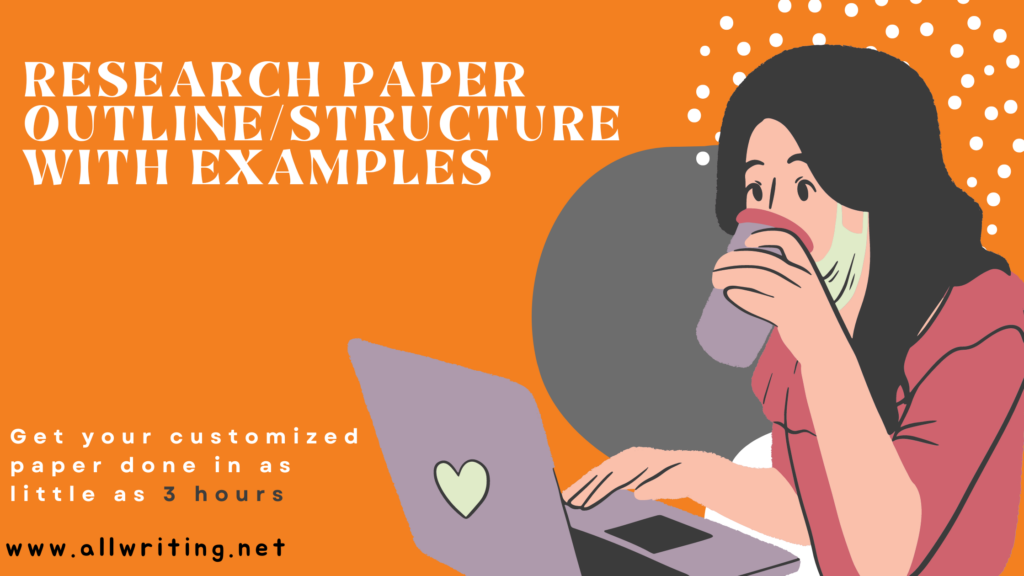Informative Essay Generator
Share knowledge and information clearly with our Informative Essay Generator, ideal for educational essays and reports.
How to Use Our Informative Essay Generator
Input Your Topic
Input your informative essay topic or subject matter into the generator.
Select Subtopics
Choose relevant subtopics or key points to be covered in your essay.
Generate Your Essay
Click the button, and watch as your informative essay is generated seamlessly.
Why Use Our Informative Essay Generator?
Efficiency
Save time and effort by quickly generating informative essays without extensive research or brainstorming.
Clarity
Ensure your essay is clear, concise, and effectively communicates complex information to your audience.
Accuracy
Receive well-structured essays that adhere to the conventions of informative writing, enhancing your credibility as a writer.
Customization
Tailor the generated content to match your unique requirements and preferences.
The Benefits Using Our Informative Essay Generator
Time-Saving
Generate informative essays in minutes, freeing up valuable time for other academic or personal endeavors.
Quality Assurance
Enjoy peace of mind knowing that your essay will be well-structured and informative, meeting the standards of academic writing.
Enhanced Productivity
Maximize productivity by streamlining the essay writing process, allowing you to focus on analyzing and presenting information rather than composing content from scratch.
Improved Performance
Increase your academic or professional performance by submitting informative essays that are well-researched, organized, and engaging.

On Time Delivery
100% plagiarism-free paper. Get your customized and done in as little as 3 hours
Get Started-
- Posted by Matt Carlson
-
- Posted by Matt Carlson
-
- Posted by Matt Carlson
What is an Informative Essay?
An informative essay is a type of writing that aims to educate and provide an unbiased, objective explanation or description of a topic. Unlike argumentative or persuasive essays where writers try to convince the audience of their perspective, informative essays simply present factual information in a clear, straightforward manner.
The primary purpose is to inform or explain a complex idea, term, process, event, object, or concept through in-depth research and comprehensive analysis. Crucially, informative essays avoid taking argumentative stances or making subjective claims, instead focusing on defining the subject matter and delivering insights in an impartial way.
Informative essays often start by providing an overview or background context to establish the significance and relevance of the topic. As the essay progresses, it systematically delves deeper into various aspects, characteristics, causes/effects, historical developments, debates, implications, and overarching themes related to the subject matter. Each section logically unpacks, elucidates, and explores new facets to construct a vivid, robust understanding for readers.
These types of essays are common across academic disciplines as a way to demonstrate subject knowledge, research capabilities, and expository writing skills. However, they’re also widely utilized in realms like journalism, technical writing, business communications, and more to deliver rich explanations and report findings to audiences in an engaging yet educational manner.
Informative Essay Structure
While specifics may vary based on the subject and intended purpose, most informative essays adhere to a foundational structure:
1. Introduction
The opening paragraph should capture the reader’s attention using rhetorical questions, relevant quotations, vivid descriptions, or startling facts/statistics related to the topic. Provide essential context and background information. The introduction culminates by presenting a clear, direct thesis statement that outlines the main focus of the essay.
2. Body Paragraphs
These make up the bulk of the essay, with each body paragraph exploring a new key point, facet, or dimension related to the topic. Maintain a logical, organized flow by grouping related ideas and moving systematically between paragraphs. Effective body paragraphs begin with a topic sentence then substantiate key insights using definitions, facts, examples, data, citations from expert sources, vivid details, and other relevant evidence.
3. Conclusion
The conclusion paragraph synthesizes and reinforces the essay’s main points without introducing new information. Restate the thesis and summarize key takeaways about the topic’s significance. A strong conclusion should create a sense of completeness and resolution while leaving readers with final reflections or considerations.
Throughout the piece, prioritize an impartial, non-judgmental tone and avoid taking overt argumentative or opinion-based stances to maintain objectivity and credibility. Clear transitions between sentences and paragraphs enhance overall cohesion and flow.
Different Types of Informative Essays
While the fundamental goal remains objective explanation, various informative essay approaches exist:
Descriptive Essays
Provides sensory details and in-depth descriptions of a specific topic, subject, concept or process to “inform” readers through vivid accounts and characterizations. Common examples include essays describing people, places, events, objects, experiences, or phenomena.
Definition Essays
Distinctly focused on unpacking and clarifying the precise meaning and understanding of a term, idea, or concept. These essays rigorously define and explore the complexities, categorizations, origins, uses, and contexts surrounding the topic.
Cause and Effect Essays
Examines and elucidates the reasons, causal relationships, actions, catalysts, or circumstances that led to a particular event, situation, or phenomenon as well as the consequences or effects that resulted.
Compare and Contrast Essays
Analyzes the key similarities, differences, characteristics, advantages, and disadvantages between two subjects, ideas, events, objects, or processes to highlight their associations and distinctions.
Process Essays
Meticulously outlines and describes the key steps, stages, methods, and procedures involved in executing a specific task, operation, or process from start to finish in sequential order.
While each approach has a particular framing, they all fundamentally share common aims – imparting clear comprehension about a subject through straightforward, thoroughly researched explanation rather than argumentation.
How to Write an Effective Informative Essay
1. Choose an Engaging Topic
An informative essay is only as compelling as the topic itself. Aim for a subject that provokes curiosity, has significance and relevance, and provides ample depth to fully examine and unpack through the research process. Avoid overly broad topics by narrowing your focus to a specific dimension or concept.
2. Conduct In-Depth Research
Since informative writing relies heavily on facts and evidence, invest extensive time into researching the topic from myriad credible, authoritative sources. Gather data from academic journals, expert books/publications, government reports, scientific studies, and other respected industry sources. Take meticulous notes to develop a comprehensive content base.
3. Construct a Clear Thesis Statement
Your thesis statement is a precise, declarative sentence that encapsulates the essay’s primary objective and scope. It should directly convey the core concept, process, term, or subject you aim to inform readers about through the piece. The thesis guides content, so craft this carefully.
4. Develop an Organized Outline
With your researched knowledge and thesis in mind, thoughtfully map out the overall structure, key section topics, and progression of the essay through outlining. Determine which major points, explanations, definitions, examples, etc. each body paragraph will address to impart full understanding in a logical sequence.
5. Elucidate with Substantive Details
Each paragraph should provide extensive clarification about that section’s focused topic or concept through specific details, facts, relevant data, expert references, illustrations, vivid examples, and other expository evidence. Maintain a formal, objective tone while thoroughly analyzing and dissecting every component.
6. Emphasize Clarity and Comprehensibility
A core tenet of informative writing involves ensuring your audience can easily follow and absorb the content through straightforward language. Use clear transitions and organizational paths, avoid overly technical jargon unless contextualizing definitions, and present details and descriptions with ultimate lucidity as the goal.
7. Be Neutral and Unbiased
Unlike argumentative writing, informative essays should not advocate specific viewpoints or make subjective claims unless directly relating expert opinions or theories. Remove personal judgments or persuasive language and stick to impartial, evidence-based explanations. Let the information speak for itself through your neutral analysis.
8. Emphasize Significance and Context
In addition to defining terms and explaining concepts, effective informative essays illuminate why the subject matter holds importance and relevance. Connect these insights to real-world applications and implications to underscore the value of comprehensive understanding about this topic.
9. Skillfully Incorporate Sources
Essays grounded in authoritative research necessitate properly citing and integrating sources both for credibility and to avoid plagiarism. Smoothly interweave quotes, data, and findings from other publications using lead-ins, attributions, and consistent citation styles (MLA, APA, etc.). Develop a mix of paraphrasing and direct quotations for variety.
10. Polish Your Conclusion
While you won’t take a stance per se, the conclusion is where you can reinforce key takeaways about the topic’s overall significance. Restate your thesis and synthesize the most notable definitions, facts, processes, and implications to impart a sense of completeness. Leave readers with insights about why this information proved vital to convey.
Mastering these techniques will enable you to produce informative essays that expand audience awareness through impressive subject-matter command and engaging yet impartial content delivery.
Informative Essay FAQs
1. What’s the difference between an informative and persuasive essay?
Informative essays aim to objectively explain, describe and inform readers about a topic through impartial perspectives and factual evidence. Persuasive essays, however, adopt a strong subjective stance and use logic, emotional appeals, and argumentation to sway others to the writer’s viewpoint on an issue.
2. How long should an informative essay be?
There is no definitive rule, as appropriate lengths vary based on factors like academic level, purpose, complexity of the topic, etc. In general though, most informative essays range from 500-1500 words across several paragraphs to comprehensively analyze and explain the subject matter.
3. How do I choose a good informative essay topic?
Effective topics are manageable subjects you can fully unpack through in-depth yet objective analysis. Ideally, find topics that intrigue you, have cultural/scientific/historical significance, and are substantive enough to offer new insights. Consider unexplored dimensions or understandings your essay could elucidate for readers.
4. What types of sources are appropriate?
Prioritize authoritative, scholarly sources like academic journals, scientific studies, expert books/publications, government data, and reputable non-profit reports from credentialed authors and institutions. General news websites or blogs are rarely appropriate unless referencing commentary from qualified subject experts.
5. Is personal experience or opinion allowed?
While drawing occasional personal examples for clarity may be acceptable, informative essays should rely primarily on external facts and evidence rather than anecdotal perspectives. Likewise, subjective statements of opinion are inappropriate unless directly quoting expert viewpoints from credible sources.
6. How much background should I include?
Your introduction and early body paragraphs should provide readers with enough context and fundamental background information to establish relevance and familiarity with the general topic. Avoid too much preamble though – the core focus is on delivering focused, in-depth explanation and analysis.
7. How do I conclude an informative essay effectively?
The conclusion should succinctly restate your thesis and retrospectively highlight the key points, processes, definitions, and learnings you conveyed throughout the essay. Additionally, impart the broader significance of the topic and its applications/implications to contextualize the value of this comprehensive understanding.
8. Are informative essays written in first or third person?
Most informative essays utilize third-person language (avoiding “I/me/my”) to create a more formal, objective tone and distance the writing from personal perspectives and opinions. However, some essays may pragmatically use first-person accounts when directly relevant, such as reflecting on research experiences or processes.
Additional References:
Informative Essay Writing Guide (UNC) –
Examples of Informative Essays (KingEssays)
Informative Essay Samples and Topics
Specialists’ average experience in academics
Customer satisfaction rates
Experts with Master’s degree or higher



